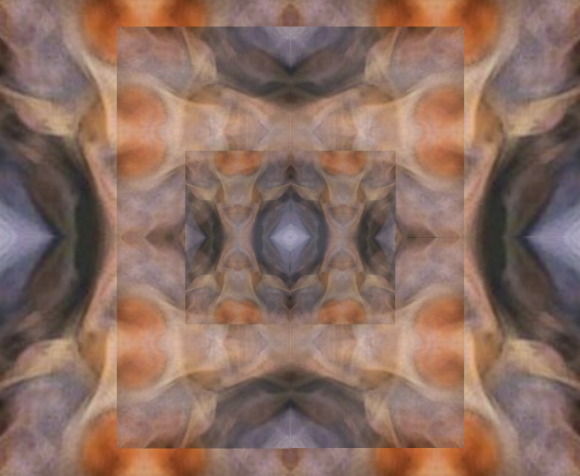In my previous post I did not distinguish sufficiently between two lines of thought I introduced. One, the main topic of that post, was the element of recurrent death; the other (which I should have kept separate) that of inevitability.
In my guiding example, the haunting experience in Vertigo, the intimation of an inevitability plays a significant role. In the first half of the film, we get a feeling of a relentless drive towards the death of (who we think is) Madeleine Elster. Of course we learn later in the movie that, in one sense, this is in fact what was happening: there had been a sinister plan behind that death (namely, Gavin Elster’s murder plot). But even before we know all this, we get a sense of “where this is going”, and that sense comes from the manipulation of our/Scottie’s expectations. A notion gradually builds up that Madeleine is possessed, and under that possession driven towards suicide, against her own will, so to speak (which is precisely what we mean by “possession”: a psychological drive the subject themselves does not quite understand and/or voluntarily control). Moreover, in the second half of the film, we again get the sense that the plot is moving inevitably towards a fatal conclusion, this time driven by Scottie’s obsession, which parallels Madeleine’s possession and follows a script we can easily recognize as a retracing of the first half.
That sense of an inevitability does not follow, however, from the mere fact that we have a recurring psychological pattern (there are patterns which do not involve the intimation of an inevitability), nor even that it is a pattern to do with death. Ergo, I should have held back about it, in my recent post, which focused on these two notions. But let us explore the theme now.

1. The intimation of an inevitability is created by a familiar narrative design. Here is a concise example, by Somerset Maugham, widely known as the “appointment in Samarra” fable (it comes actually from his play Sheppey).
[Death is speaking:] There was a merchant in Baghdad who sent his servant to market to buy provisions and in a little while the servant came back, white and trembling, and said, Master, just now when I was in the marketplace I was jostled by a woman in the crowd and when I turned I saw it was Death that jostled me. She looked at me and made a threatening gesture; now, lend me your horse, and I will ride away from this city and avoid my fate. I will go to Samarra and there Death will not find me. The merchant lent him his horse, and the servant mounted it, and he dug his spurs in its flanks and as fast as the horse could gallop he went. Then the merchant went down to the market-place and he saw me standing in the crowd and he came to me and said, Why did you make a threatening gesture to my servant when you saw him this morning? That was not a threatening gesture, I said, it was only a start of surprise. I was astonished to see him in Baghdad, for I had an appointment with him tonight in Samarra.
The death of the servant appears to be fated, and the plot demonstrates it to be inevitable, since his actions (intended to avoid it) cannot prevent it; in the end, they are what actually brings it about.
But let’s be clear that the weird dynamic is not the making of Death, who appears personified in the story. Death herself is surprised at their first encounter, as it turns out, and the decision of the servant to flee to Samarra, although effected by Death’s behavior, is not the result of a deliberate action on her part. His eventual meeting with Death at the appointed time is the consequence of the servant’s own choices; yet that was obviously not intentional, either. In other words, the weird forces at play here, which somehow make it happen that everything runs as arranged, are neither the plans or intentions of the man nor the doings of Death. What arranges things is something or someone apart, an invisible kind of force following an agenda distinct from both the task of Death and the interests of the servant.
This force has sometimes been explicated by concepts such as Fate, and variously been personified by the Norns or similar figures. I’m not interested in enumerating all those philosophies and myths, but notice that they take a different form, or belong to a different genre, than our story. “Fate” is a concept, and a philosophical account in terms of Fate would be a conceptual explanation; the Norns are personifications, and thus a story involving them would be a mythical narrative. But what happens in the Samarra story is neither: no workings of Fate (or any other related concept) are explained, nor do the Norns (or similar personifications) make an appearance. There is just a sense of a necessary dynamic here: in a word, what I have called an intimation of an inevitability. The story leaves it open to us, of course, whether we want to explain it using a concept like Fate, or give it a mythological background by supplying personifications like the Norns. But as we can see, neither is actually required to leave us with that sense of an inevitability.
The Samarra story is a very neat and minimal example for what I mean, but it is by no means the only one. Tragedies are full of similar constellations, from Oedipus to Emilia Galotti, and if they’re well crafted, we get the same intimation of an inevitability from them as from the Samarra story (and of course from Vertigo).
2. Bernard Williams has written about what I have called the intimation of an inevitability in his Shame & Necessity, where he calls it “supernatural necessity”. In part, that term is chosen in accordance with his overall theme of necessity as experienced in Homerian antiquity; but there is the other part (the “supernatural” bit), too, and we should mention right away that this is not meant to explain anything: “I do not use the term ‘supernatural’ as a classification that is supposed to be significant in itself. I use it only as a label for a kind of necessity […] that does not belong to our ways of explaining the world. I do not believe that the label itself tells us much about the ways in which this kind of necessity fails to fit our views of the world” (131). Understanding what’s going on has little to do with what we think (or the ancient Greeks might have thought) is “natural” or otherwise.
But it is interesting to think about it as a kind of necessity.
[W]e are told that a certain thing will happen whatever we do, although it is just the kind of thing we might hope to avoid by action. Moreover, if efforts to avoid the outcome helped in fact to bring it about, this is a reliable sign, after the event, that the supernatural has been at work. This is what happened with Oedipus; this was the situation with the appointment in Samarra. (141)
It also fits precisely with the strands of inevitability in Vertigo we have discussed above: the suicide of the fake Madeleine, and then later the death of Judy, both appeared to be coming up no matter what action Scottie would take (and at points his actions would even help the plot forward towards them).
Note also what Williams mentions in passing: only “after the event” we can recognize how actions that were intended to avoid the outcome furthered it along instead. This is a typical attribute of what Jungians would call, rather vaguely, “the unconscious”. If the agent had been aware of the eventual result from their course of action, they would not have taken it. What drives their behavior, therefore, is in some sense “unconscious”: it is, at least to some degree or in some aspects, unreflected and unintended — until it is too late. In retrospect, however, both the agent and we (the onlookers) realize where events have been going. Moreover, that resulting direction appears subjectively meaningful to the agent, and also somehow structured (as opposed to merely random) as if running according to someone’s agenda.
[A]t certain crucial points outcomes converge in a pattern that displays the shape of the purposive, and your attempts to avoid the outcome are necessarily ineffective. The usual condition of life is that you do not know exactly what those points are. (142)
Notions such as “the unconscios” (or Fate, the Norns, etc.) capture this sense of there somehow being a structure (as-if an agenda), albeit only vaguely. Williams is aware of that sense, too, although his way of expressing this aspect appears not less vague, unfortunately: he calls it “the idea of being in someone’s power” (143) — but it remains unspecified who that “someone” is. Back to Vertigo, however, we can pin it down at least in the case of the first strand (the fake Madeleine’s suicide) and its inevitability: for that is indeed the invisible hand of “someone” arranging things (namely, the murderous plot of Gavin Elster). In the case of the second strand (Scottie’s obsession driving Judy into her death), however, we draw a blank: there is no-one’s agenda, merely a pattern in the dynamic. Yet it exhibits the same inevitability. It is as if the movie tries to tell us that sometimes a drive towards an inevitable-looking outcome might be due to someone’s agenda, but sometimes it’s not — and these are of course the interesting cases. (Those where we have, in the terminology I’m developing here, ghosts or curses: psychological patterns of a certain kind playing out.)




[…] of postings has been Vertigo; and Vertigo shares this characteristic — which I have called an intimation of an inevitability — with other narratives of a certain design, including the “appointment in Samarra” and […]
[…] the theory I am exploring, the term ‘ghost’ does not denote a quasi-personal, supernatural entity; certainly, by this theory, a ghost is also not something that can be observed, immediately or […]